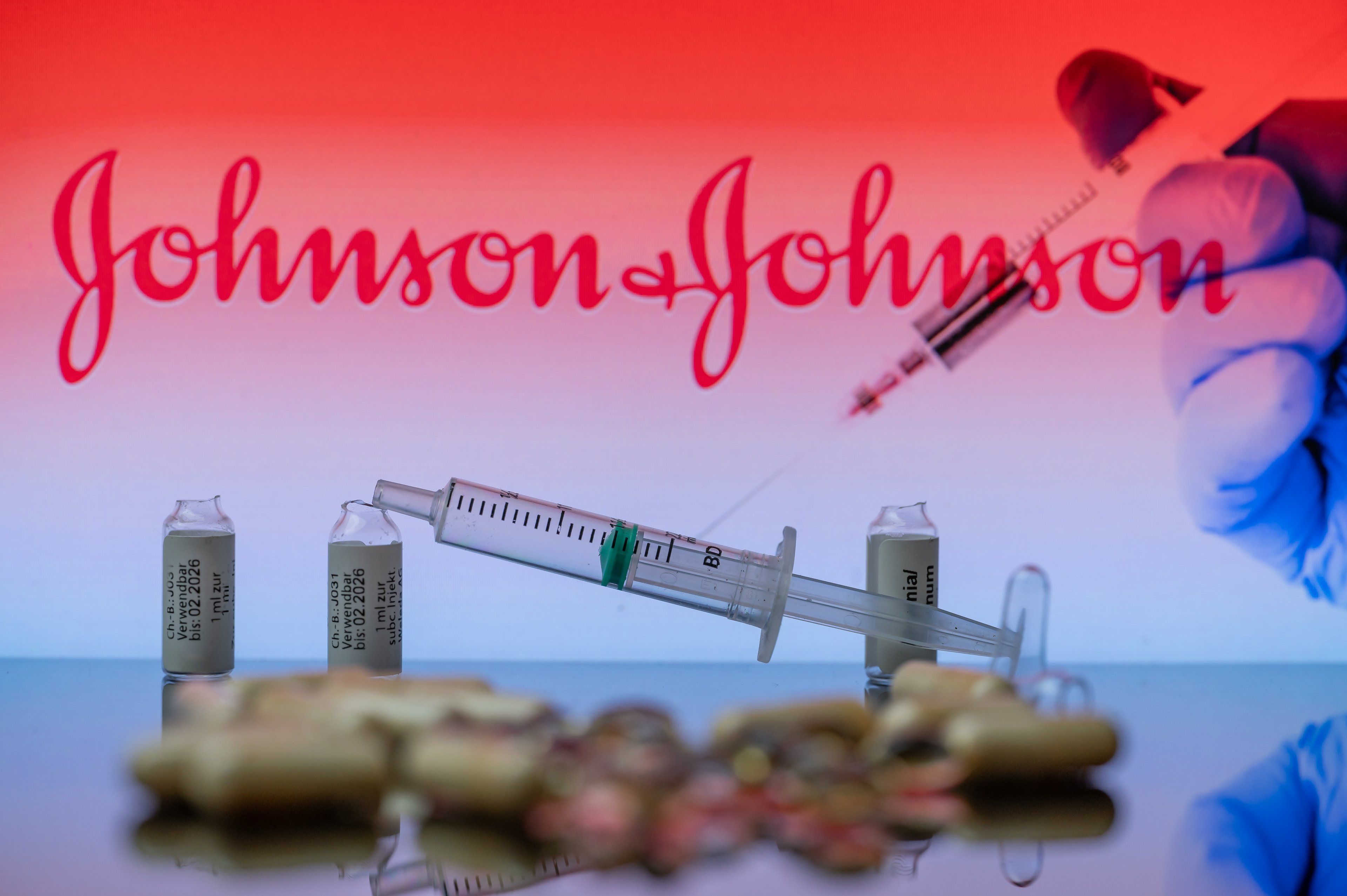In the biotech and pharmaceutical industries, future expected sales of new and experimental drugs are just as important as sales of current ones. Newer drugs are needed to diversify portfolios away from single top sellers and fill in the holes left over in the top line from patent expirations. That's where the word "blockbuster," or a drug expected to exceed $1 billion in annual sales, is often used.
Looking ahead into 2014, investors should keep an eye on four newly approved drugs from Gilead Sciences (GILD +0.36%), Johnson & Johnson (JNJ 0.66%), Pharmacyclics (NASDAQ: PCYC), GlaxoSmithKline (GSK +0.38%), and Theravance (NASDAQ: THRX) -- all of which are expected to easily surpass the blockbuster mark over the next few years.
Major leap forward in treating hepatitis C
Gilead's Sovaldi, which was approved by the FDA in December, was a revolutionary leap forward in hepatitis C treatments. In the past, hepatitis C was treated by the antiviral drugs ribavirin and interferon, which boost the immune system but cause severe flu-like symptoms. Hepatitis C drugs were also usually injected.
Sovaldi, on the other hand, is a once-daily pill that can be taken by patients with genotypes 2 and 3 of the hepatitis C virus without an additional dose of interferon. Patients with genotype 1 (the most common type) and type 4 must still take the pill with ribavirin and interferon.
While Sovaldi isn't a perfect solution, it's a major improvement from the treatments that came before, and its approval has given patients hope that a single oral treatment for all six genotypes of hepatitis C might soon be a reality.
Analysts believe that Sovaldi could hit peak sales of $7 billion, due to its game-changing potential and wholesale price of $84,000 for a full 12-week treatment ($1,000 per pill). By comparison, a 12-week treatment with Johnson & Johnson's Incivek/Incivo or Olysio, which both require interferon, costs about $66,000.
Sovaldi's blockbuster sales are expected to offset eventual losses from the patent expiration of Viread in 2017, the blockbuster antiviral drug that is included in five out of seven of Gilead's HIV and antiviral treatments. Together, those five drugs accounted for 84% of Gilead's product revenue in 2013. Sovaldi has already generated $139 million since its approval and launch.
Imbruvica's CLL approval could be a major catalyst in 2014
J&J and Pharmacyclics' Imbruvica was approved by the FDA for the treatment of the blood disorder mantle cell lymphoma (MCL) last November. MCL affects approximately 15,000 people in the United States.
Imbruvica directly competes against J&J and Takeda's older MCL treatment, Velcade. In clinical trials, patients given Imbruvica showed an overall response rate of 65.8%, compared to a 31% rate for Velcade. Imbruvica also has a milder side effect profile.
The approval for MCL, however, was only half of the good news that investors had expected. The drug's high peak sales estimates of $6 billion are dependent on an additional approval for chronic lymphocytic leukemia (CLL) -- another blood disorder which affects 15,000 patients across the U.S.
Imbruvica was approved by the FDA for the treatment of CLL yesterday. J&J and Pharmacylics' phase 3 RESONATE study demonstrated that Imbruvica was more effective than GlaxoSmithKline's Arzerra, a competing second-line treatment for CLL, in terms of overall survival and progression free survival rates. Based on that data, the Independent Data Monitoring Committee (IDMC) recommended that the trial be stopped early on January 7.
This latest approval is great news for both J&J and Pharmacyclics, which split future sales down the middle. J&J gets a blockbuster to offset slowing sales of its blockbuster arthritis drug Remicade, which will go off patent in Europe in 2015, and Pharmacylics finally gets its first marketed product.
Investors should note, however, that Imbruvica has a controversial wholesale price of $130,000 per year ($90 per pill) -- much higher than the $70,000 to $80,000 per year for Velcade, but possibly less than the $98,000 for a six month treatment course of Arzerra. Whether that pricing will affect demand for one drug over another remains to be seen throughout the year.
A tale of two Elliptas
GSK investors should be familiar with the dilemma it faces with Advair (also known as Seretide), the blockbuster asthma and COPD (chronic obstructive pulmonary disease) drug which generated £5.27 billion ($8.65 billion) in sales in 2013. The drug represented 70% of GSK's respiratory portfolio sales and accounted for a fifth of the company's top line in 2013.
The problem is that Advair consists of two parts -- the medication and the Diskus inhaler. The U.S. patent for the medication expired in 2010, but the patent for the Diskus lasts until 2016. The complexity of the Diskus design has kept generic competitors at bay, but competing treatments such as AstraZeneca's Symbicort and Merck's Dulera have steadily eroded Advair's U.S. market share, which fell from 67.2% in October to 61.6% in January.
To prepare for life after Advair, GSK has been working with Theravance on several new asthma and COPD treatments to strengthen and diversify its respiratory portfolio. Of these respiratory treatments, Breo Ellipta and Anoro Ellipta are considered the most important:
|
Approval |
2013 sales |
Peak Sales Estimates | |
|---|---|---|---|
|
Breo/Revlar Ellipta |
FDA: May 2013 EU: November 2013 |
£8 million ($13 million) |
$1.3 billion |
|
Anoro Ellipta |
FDA: December 2013 EU: Not approved |
N/A |
$1.4 billion |
Sources: GSK press releases, annual reports, industry websites.
Although $2.7 billion in combined peak sales won't completely replace Advair, they represent two key ways to decrease GSK's dependence on the aging blockbuster drug.
GSK investors should consider the possible EU approval of Anoro later this year as a potential catalyst for the stock, but they should also remember that both Breo and Anoro Ellipta could face very stiff competition from Novartis' Ultibro Breezhaler, which was approved in Europe and Japan last September.
The Foolish takeaway
In conclusion, health care investors should keep a close eye on sales of Sovaldi, Imbruvica, and the two Elliptas throughout 2014.
Sovaldi's success would guarantee the continued growth of Gilead's top line after Viread's looming patent expiration. Imbruvica might turn Pharmacyclics into the next Celgene, and also provide J&J with a safety net in case Remicade sales decline. Last but not least, Breo and Anoro Ellipta could help GSK rely less on Advair sales.
Editor's Note: A previous version of this article stated that Pharmacyclics' Imbruvica was not yet approved for the treatment of CLL. The article has been updated and the Fool regrets the error.








